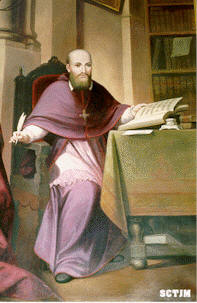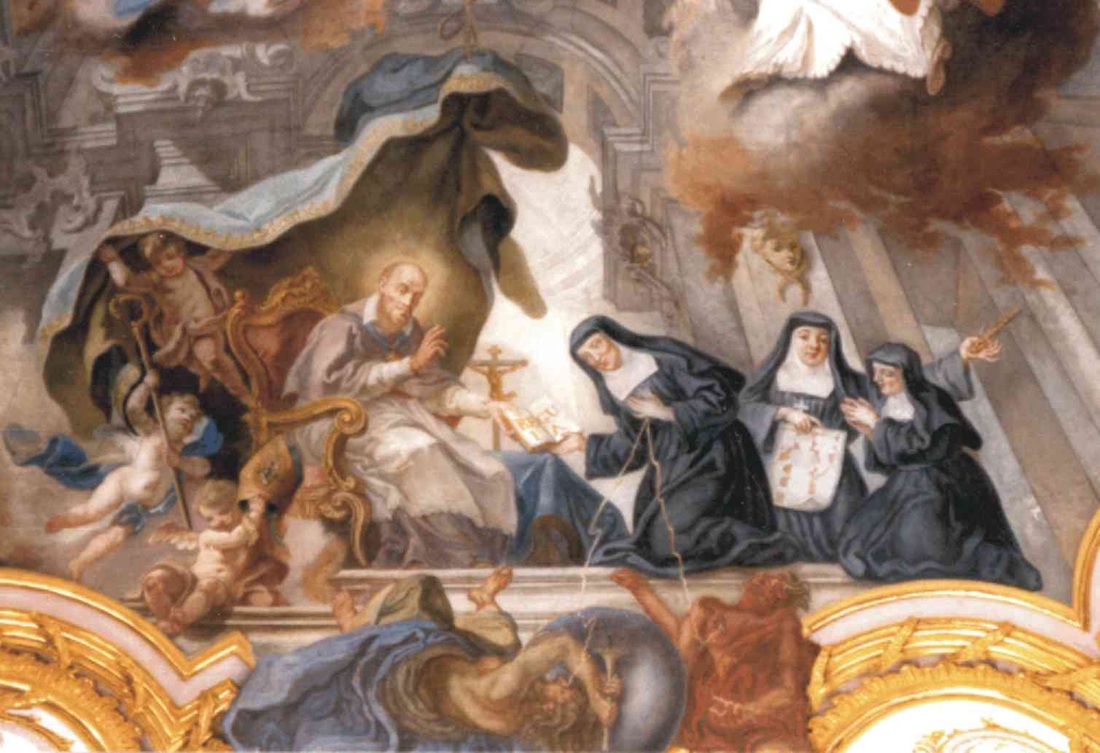
He refused to be made Counsellor of the Parliament of Chambery, for which his family had obtained for him patents from the Duke of Savoy, and determined to become a clergyman. He was appointed to the Provostship of the Church of Geneva, and, being shortly afterwards ordained Priest, discharged so admirably the duties of his position, that he was sent by Granier, his Bishop, to preach the Word of God in Chablais, and other places in the outskirts of the diocese, where the inhabitants had embraced the heresy of Calvin. He joyfully undertook this mission, in which he suffered much, being often hunted by the Protestants to murder him, and assailed by many calumnies and plots. Amid all these dangers and struggles his constancy remained invincible, and under the blessing and care of God he is said to have recalled seventy-two thousand of these heretics to the Faith of Christ's Universal Church, among whom were many distinguished by rank and learning.
After the death of Bishop Granier, who had procured his appointment as Coadjutor, he was consecrated Bishop. In that office he was truly a burning and a shining light, shewing all around a bright example of godliness, zeal for the discipline of the Church, ardent love of peace, tenderness to the poor, and, indeed, of all graces. For the greater ornament of God's worship he established a new Order of Nuns, which is named from the Visitation of the Blessed Virgin. These nuns follow the Rule of St. Augustine, but Francis added thereto several additional constitutions distinguished by wisdom, prudence, and tenderness. He enlightened the Church by writings full of heavenly teaching, and pointing out a safe and simple road to Christian perfection. In the 55th year of his age, while on his way from France to Annecy, after saying Mass at Lyons on the Feast of St. John the Evangelist, he was seized with a fatal illness, and on the next day passed from earth to heaven, in the year of our Lord 1622. His body was carried to Annecy and honourably buried in the Church of the nuns of the Visitation, where it soon began to be distinguished for miracles. The truth of these having been proved, the Supreme Pontiff, Alexander VII, enrolled his name among those of the Saints, and appointed for his Feastday the 29th of January. And the Supreme Pontiff, Pius IX, on the advice of the Congregation of Sacred Rites, declared him a Doctor of the Universal Church.





